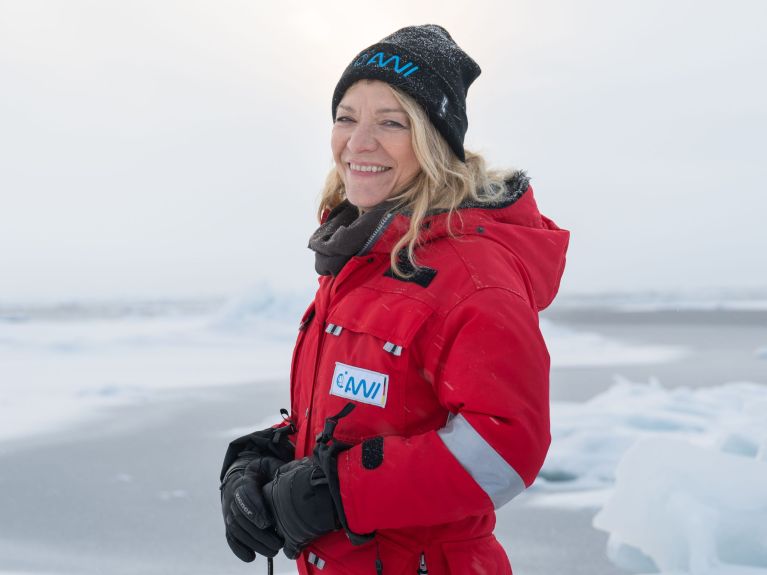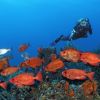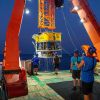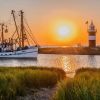“The ocean can be part of the solution to a sustainable future.”
Antje Boetius is Germany’s most famous marine biologist. She talked to us about her work and explained the interaction between marine and climate protection.

Professor Antje Boetius is Director of the Alfred Wegener Institute and has led many scientific expeditions. She researches the impact of climate change on the oceans and polar regions.
Professor Boetius, what sparked your love of and interest in the sea?
Even as a child I was fascinated by the ocean. I was obsessed with pirate novels, and also picture books and reference books about the sea and those first underwater films about all the crazy, undiscovered live in the deep. My grandfather was a captain, so I heard a lot about seafaring and the broad horizons over the sea.
Nowadays your work takes you to sea. What are you working on right now?
I am coordinating preparations for a major international Antarctic programme. We want to contribute to the UN Ocean Decade by conducting research on all aspects of the continent of Antarctica with as many international partners as possible. The Antarctic not only demonstrates the fundamental impact on climate, but also what has been achieved over decades of marine protection. There are more wales again, for example, which are an important influence on the Antarctic ecosystem.
What is the role of the Alfred Wegener Institute in terms of climate change and protecting the oceans?
AWI conducts research into earth systems from the deep oceans up to the atmosphere, and from the polar regions to the North Sea. We work with national and international partners to provide scientific data on the causes and impacts of climate change and also how that interacts with the diversity of life on Earth. We observe natural and man-made chemical fingerprints on the environment and are developing plans to protect it. The findings from this fundamental research inform decision-making and find their way through political processes into recommendations and measures. But dialogue with society matters, too.
Science communication is an essential element of the democratic negotiations of the future.
Some people nowadays trust science less and doubt facts. What can be done to counteract this trend?
Surveys have shown that in Germany, trust in science remains much higher than in other sectors, but we cannot rest on our laurels. We are in the midst of a global process of transformation where we are witnessing changes and extremes, but at the same time, we are feeling disappointment that the gap between the progress we are seeing and the goals set by policymakers is growing ever wider. The best way to combat this disappointment is by forging networks, promoting dialogue, encouraging participation in many small activities, and developing measures aimed at improvement. This is why science communication is an essential element of the democratic negotiations of the future.
What is it about the current state of politics that makes sharing knowledge with one another so important?
Of course it’s always important to do that. Science not only bears a responsibility for generating new knowledge, but also for assessing risk, and for making sense of that knowledge in a social context. Sharing our findings with others so as to develop a picture of the future we want helps to stem fear and resignation. Science is always providing progress and ideas for solutions both large and small. This helps social cohesion.

What is needed to drive long-term transformation forward?
We need the right socio-economic and political environment so that ecosystems on land and in the sea can be renatured, restored and used sustainable. It is also vital that we think about marine protection in a cohesive way at regional, national and international levels, as that way the ocean can be part of the solution to a sustainable future. Going forward, we also need to boost education, research and innovation.
What is the role of international collaboration and knowledge-sharing in terms of researching and protecting the oceans?
Marine and polar research has always been international. We don’t only share the use of ships, buoys and other technologies, but we also share the data we generate and the findings we reach. As regards advising policymakers on an international level, science holds a strong position on global climate and biodiversity councils. International goals have been agreed on marine and climate protection, but there has been a lack of progress around international implementation, and there are not enough international partnerships which can make achieving these goals easier. The economic incentives for effective marine protection are either lacking or far too small, and many subsidies actually produce the opposite outcomes. Scientists must therefore continue to warn that we are pushing too much of the load onto future generations.


